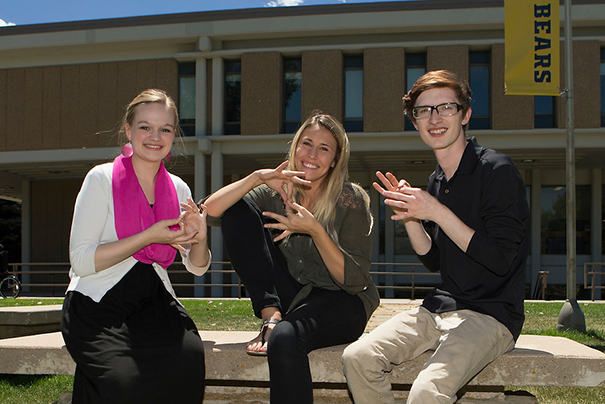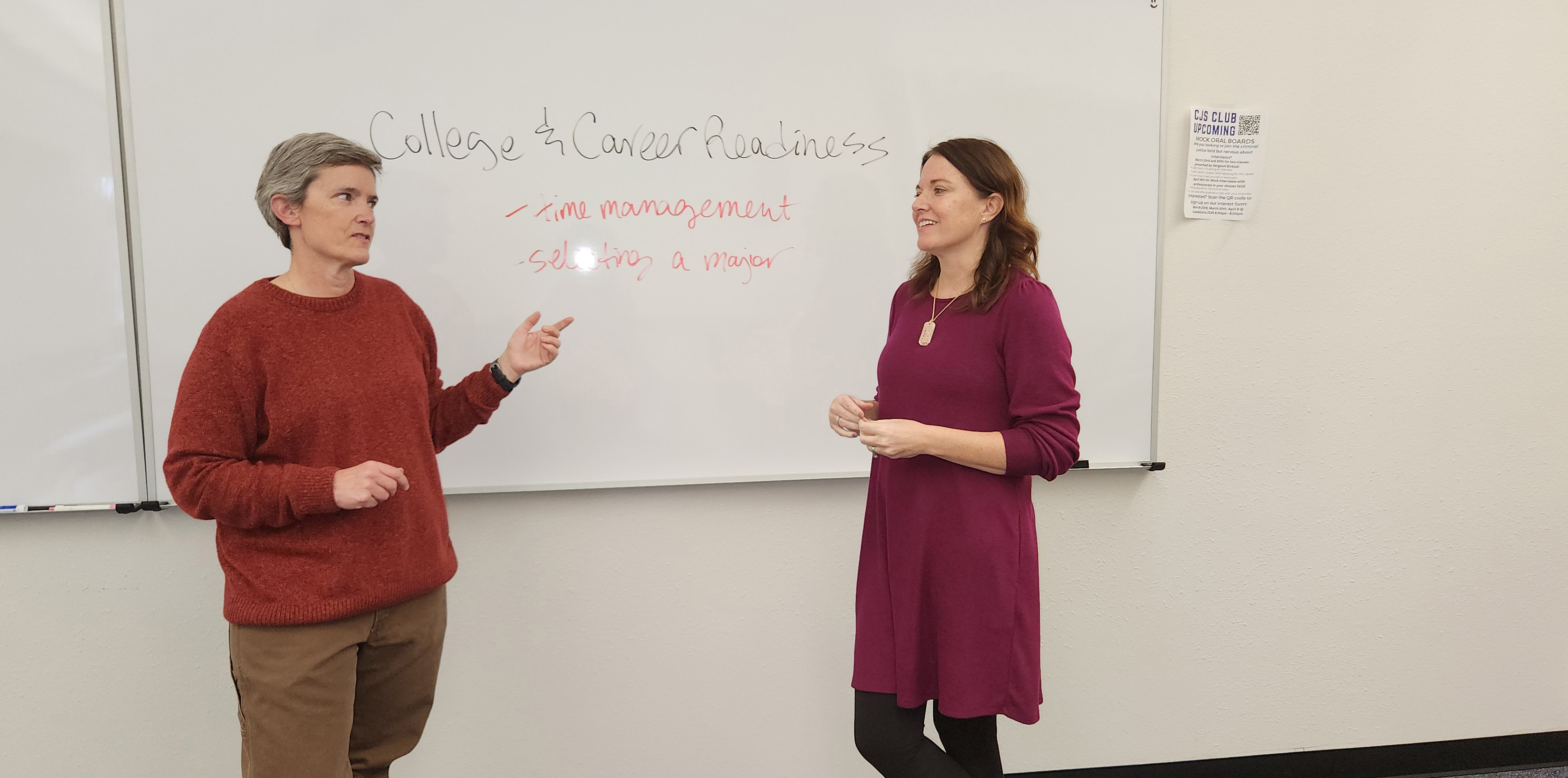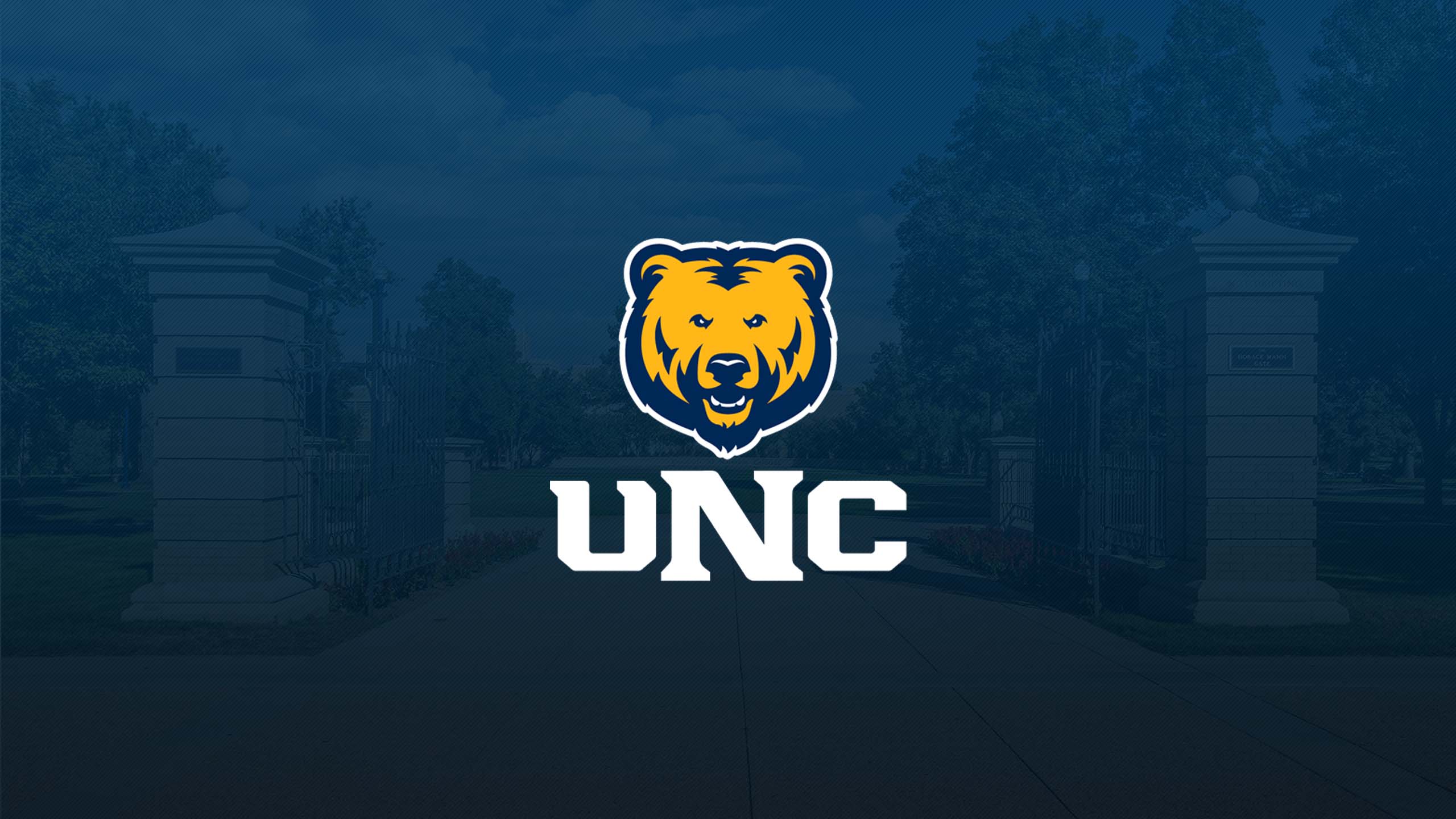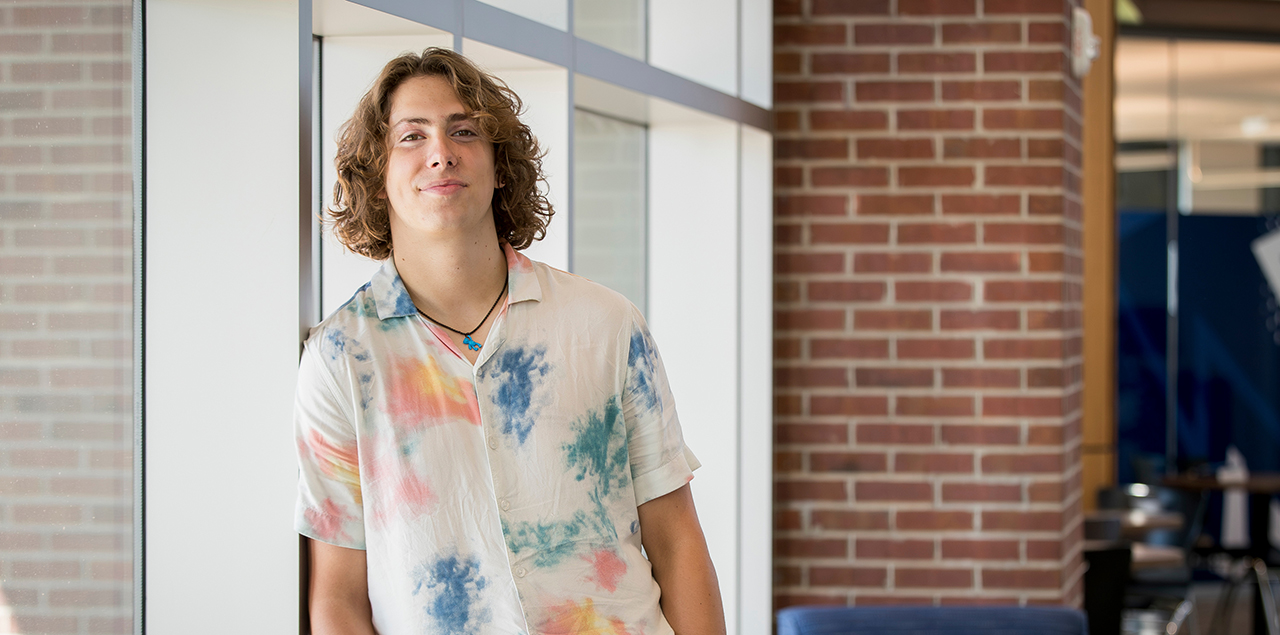
Individuals who are deaf, hard of hearing or deafblind and live in rural Colorado may see an increase in qualified American Sign Language interpreters as a new certification training program begins.
The Rural Interpreting Services Project was made possible by a partnership between UNC’s Department of American Sign Language and Interpreting Studies and the Colorado Commission for the Deaf, Hard of Hearing, and DeafBlind.
Currently, ASL-English interpreters working in the deaf community are required to hold national certification, which includes a four-year degree; however, there’s a shortage of certified interpreters in rural Colorado. The project’s Certification Readiness Training program will prepare participants to earn credentials. The yearlong mostly online training program will run from September 2019 to October 2020, and the estimated cost for participants is $100 to cover books and materials. See the full admission criteria.
ASL and Interpreting Studies Director and RISP Grant Principal Investigator, Barbara Garrett, Ph.D., along with the department’s teaching staff were vital in developing the training program. Instructor Lauri Krouse developed the scope and sequence of the training, and other faculty members, including Senior Lecturer Pauline Ballentine and Instructor Laurie Bolster, Ph.D., provided their expertise in the development of the training modules.
“To my knowledge, this is the first time that UNC has partnered with the Colorado commission to this extent for this type of training,” said Susan Brown, UNC ASL instructor and project director of RISP.
The commission received funding for the Rural Interpreting Services Project from the Colorado General Assembly and is actively engaged in the development of the training.
As part of the program, practitioners will have access to an online community of experts, students, members of the deaf and deafblind community, and working interpreters that they can connect with and get support from.
“This is a really dynamic and exciting opportunity for the deaf and interpreting communities in Colorado,” said Brown. “I’m so appreciative of the Colorado Commission’s willingness to take this on as well as their engagement and enthusiasm.”
Also, four annual $12,000 scholarships are available to juniors and seniors of the department’s ASL-English Interpreting: Community Interpreting bachelor’s degree program. For more information, interested and qualified students can contact Kate Beilmann, administrative coordinator, at 970-351-1075 or Kathleen.Beilmann@unco.edu.
As of Friday, March 25, there were 33 applicants from across the state. The deadline to apply is Friday, March 29. Learn more about the RISP training program: unco.edu/cebs/asl-interpreting/professional-resources/certification-readiness-training.aspx
More Stories
-
School Psychologists in Short Supply as Youth Mental Health Concerns Increase
Este artículo no está en español.
-
Hey, Teach! Or Should That be Professor?
Este artículo no está en español.
-
VIDEO: Expand Your Horizons Internationally
Este artículo no está en español.
-
Colorado Calling – Idaho Student Finds College Home in Greeley
Este artículo no está en español.





